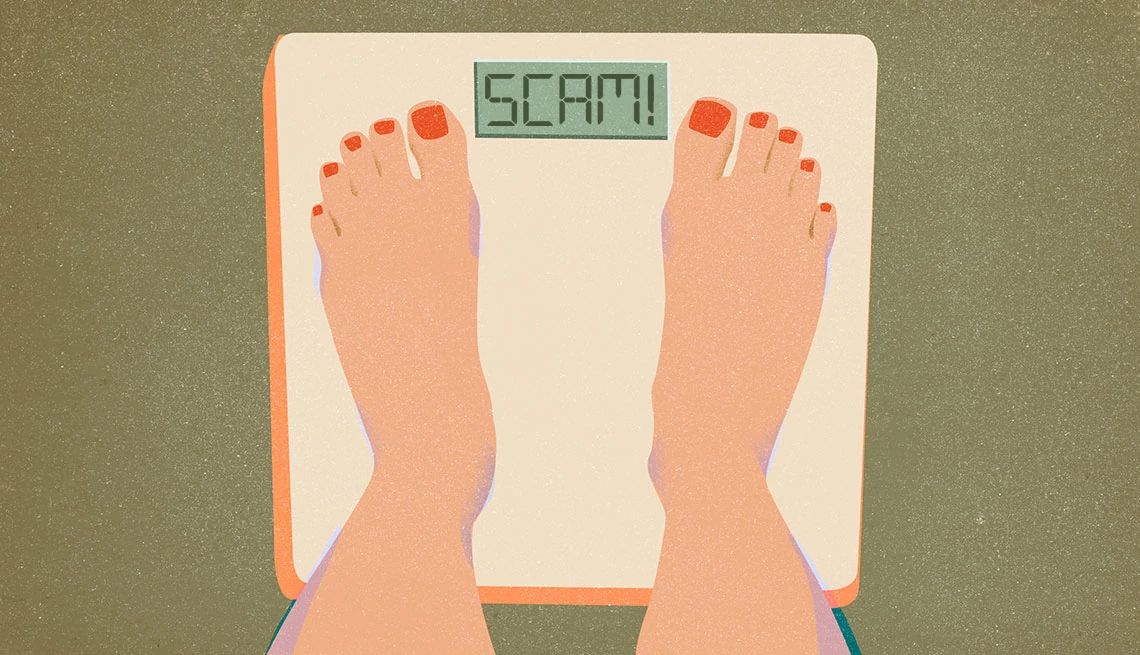Influencers’ outsize impact
Sometimes the people selling supplements are in your social media feed. Three out of four shoppers have purchased a product because an influencer recommended it, according to a 2024 survey by Grin, a creator management platform.
“Influencer marketing has increased dramatically in recent years, and it’s continuing to rise,” says Cassandra Rasmussen, an attorney in the FTC’s Bureau of Consumer Protection.
The FTC works to protect consumers from deceptive advertising. Over the past few years, the FTC has taken action against influencers. In one case, the agency sent warning letters to influencers, including singer Cardi B, who promoted a weight loss tea. “They claimed all sorts of things that it did not do,” Rasmussen says.
The FTC requires influencers to disclose clearly and upfront if they’ve been paid. “It can be difficult or impossible for the consumer to know that an influencer’s post is really an ad in disguise,” Rasmussen says. Look for prominent disclosure overlaid on a screen or a clear statement about the influencers’ relationship at the beginning of videos.
Sometimes celebrities don’t even know their image is being used to sell bogus products, as scammers can use artificial intelligence to manipulate their images.
Warning signs of a scam
Promises of speedy slimming. Considering the body’s ability to break down fat, the most someone can realistically lose is 10 pounds a month for women and 15 pounds a month for men, Lazarus says. “Anything above that is either going to be water loss or muscle loss.”
Weight loss patches, creams and wraps. “They may be helpful for complexion, but they don’t do anything for the disease of obesity or for weight loss,” Lazarus says.
Assurances that no change of habit is needed. A supplement may claim that users can lose weight while eating as much as they want. For most people, successful weight loss involves healthy eating, sleeping well, regular physical activity and stress reduction, Lazarus says.
Effusive language. Terms may include “miracle,” “revolutionary” or “scientific breakthrough.” A few years ago, a green tea extract was said to be effective for weight loss, Lazarus says. “That was on every street corner and in every mall. And it was later determined that they just made up the data.”
Rave reviews. “If there’s a bunch of glowing five-star reviews and there’s no two-star reviews, three-star reviews, you know … either the company is only publishing the positive reviews or those could be fake,” McGovern says.
Endorsements. “Any supplement that says it’s approved by the FDA should be a red flag,” Ng says. “The FDA does not approve dietary supplements.”
Free trial offers. These offers can do damage to your wallet. “You may need to put in a credit card for shipping, and then all of a sudden, you’re getting charged (monthly),” McGovern says. “You could be on the hook for a subscription that … you didn’t know you authorized.”
How to protect yourself
Check out the company. Check out a weight loss company’s reputation by searching the Better Business Bureau (BBB) database and other websites.
Check the product. The FDA keeps a database of approved drugs that consumers can check, as well as warnings to the public about weight loss products that contain hidden ingredients that may be harmful.
Carefully scrutinize offers. Watch for pre-checked boxes that authorize the company to charge you for regular orders or additional products. Don’t sign up for subscriptions unless there’s an option to cancel. And research how much time you have to cancel, McGovern advises.
Use caution when buying online. Ng cautions against buying medications on the internet. “Who are you giving your health information to?” McGovern asks. “Any kind of health insurance card (or) Medicare card should be treated like a Social Security number.”
Above all: Talk to your doctor. A physician will do a comprehensive evaluation and can guide you toward evidence-based treatments, Lazarus says. If you don’t feel comfortable talking to your doctor, check for medical professionals trained in weight loss management through the Obesity Medicine Association.
If you’ve been a victim
Report weight loss scams to the FTC (online or at 877-382-4357) or your state attorney general’s office.
The FDA has a page on tainted weight loss products and information on how to report problems with dietary supplements.
You can search and file a report on the BBB’s Scam Tracker.
Resources
The Obesity Medicine Association has a searchable database of specialists in your area.
The Obesity Action Coalition, a patient advocacy organization, offers support groups, educational information and other resources.
The National Institutes of Health has information on weight management, including diet myths and facts.
This article was completely rewritten and new interviews were conducted with experts in April 2024.































































More on Scams and Fraud
6 Common Types of Investment Fraud
Learn the red flags for financial scams
What to Do After You’ve Experienced a Scam
Take these key steps to protect your bank accounts and personal information, and find the support you needNew Tech Tools Protect Consumers From Identity Fraud
Emerging fraud-fighting technologies make it easier to separate impostors from actual customers